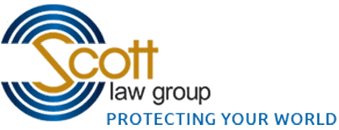In North Carolina, you can be charged with any of six misdemeanor levels of driving while intoxicated (DWI). In certain circumstances, however, DWI can also be charged as a felony.
Here are the penalties for each charge:
Level V misdemeanor
- Minimum jail sentence of 24 hours; maximum 60 days
- A fine of up to $200
- Suspended sentence possible upon condition of performing 24 hours of community service
Level VI misdemeanor
- Minimum jail sentence of 48 hours; maximum 120 days
- A fine of up to $500
- Suspended sentence possible upon performing 48 hours of community service
Level III misdemeanor
- Minimum jail sentence of 72 hours; maximum six months
- A fine of up to $1,000
- Suspended sentence possible upon performing 72 hours of community service
Level II misdemeanor
- Minimum jail sentence of seven days; maximum 1 year
- A fine of up to $2,000
- There is no condition for a suspended sentence, however, you may be able to receive credit and not spend any time in jail if you go to an inpatient rehabilitation treatment center or wear an alcohol monitor before your trial
- No limited driving privilege available
Level I misdemeanor
- Minimum jail sentence of 30 days; maximum of 2 years
- A fine of up to $4,000
- There is no condition for a suspended sentence, however, you may be able to receive credit and not spend any time in jail if you go to an inpatient rehabilitation treatment center or wear an alcohol monitor before your trial
- No limited driving privilege available
Level A1 misdemeanor
- Minimum jail sentence of 12 months; maximum of 36 months
- A fine of up to $10,000
- There is no condition for a suspended sentence, however, you may be able to receive credit on a jail sentence by wearing an alcohol monitoring device prior to your trial
- No limited driving privilege available
Felony DWI
Habitual DWI offenders are those who have three prior DWI convictions within seven years, and they can be charged with felony DWI. This carries a minimum penalty of one year of active jail time without the possibility of suspension. A substance abuse program will be required, as well.
Consequences of a DWI conviction in North Carolina
The two highest misdemeanor levels, Level I and Level II, are generally charged against people who have a prior DWI conviction within the previous 7 years, those driving on revoked licenses due to a prior DWI conviction, those who had a child under the age of 18 at the time of the alleged offense and those who caused a crash with serious injuries.
In addition, you may have your car seized by the state immediately upon your arrest. If you are convicted, the vehicle will be sold and the local school board will receive the proceeds.
On top of that, you face a driver’s license revocation for 30 days immediately after your arrest, with a limited driving privilege available after 10 days in some cases. If you are convicted, you lose your license for a year. The judge may grant you limited driving privileges under certain circumstances. A limited driving privilege can allow you attend substance abuse treatment or school and for essential maintenance needs.
If you have been arrested for DWI in North Carolina, don’t assume that you should just plead guilty. There may be options available to fight the charge against you and avoid a conviction. Contact an experienced North Carolina DWI defense lawyer right away to discuss your case.


